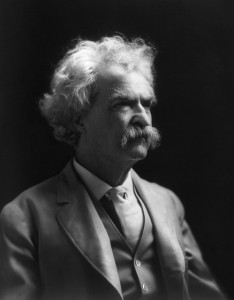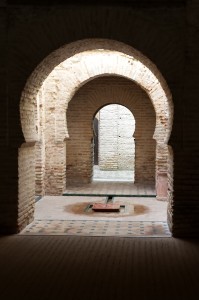 …the romance of a certain place in a certain time, the attraction of an historic cause or an historic style. The discovery of a person who no one seems to have heard of, but who is so engaging and interesting, or so admirable and heroic and who languishes in anonymity, when their story cries out to be told. And then there’s the resonance, the read across to events today. Lots of reasons why writers write about the past.
…the romance of a certain place in a certain time, the attraction of an historic cause or an historic style. The discovery of a person who no one seems to have heard of, but who is so engaging and interesting, or so admirable and heroic and who languishes in anonymity, when their story cries out to be told. And then there’s the resonance, the read across to events today. Lots of reasons why writers write about the past.
It seems to me that a lot of what we write about is brought about through happenstance. We happen to be in a certain place, where such and such occurred so dramatically, so many years ago and the imagination is fired. How well that story, the one we’ve been thinking about at the back of the mind for ages, would fit in such a milieu. What an opportunity for one’s characters to interact with the real-life history makers. What an opportunity to bring history to life.
Invariably, research is required. We may know quite a lot about a certain  period already, we’ve encountered it before in another context, (another happenstance) but there will still be more to learn and this, in itself, is seductive. But beware, for research can be a trap to ensnare the writer, who, like Bunyan’s Christian, can be drawn from his path into the net of the Enchanted Ground. It’s easy for a writer to wallow in research, seeking always to know more, when, in fact, while research is necessary, it is the story which must be paramount. And after all, as Mark Twain said to Rudyard Kipling,
period already, we’ve encountered it before in another context, (another happenstance) but there will still be more to learn and this, in itself, is seductive. But beware, for research can be a trap to ensnare the writer, who, like Bunyan’s Christian, can be drawn from his path into the net of the Enchanted Ground. It’s easy for a writer to wallow in research, seeking always to know more, when, in fact, while research is necessary, it is the story which must be paramount. And after all, as Mark Twain said to Rudyard Kipling,  ‘Get your facts first and then you can distort them as much as you please.’ He knew what was important.
‘Get your facts first and then you can distort them as much as you please.’ He knew what was important.
If we are to resurrect the past ( as Hilary Mantel would have it – the title of her Reith Lectures 2017 ) we need to do so with knowledge, but not to obscure the story (see Authenticity and Verisimilitude for examples from my own fiction). The telepathy between writer and reader mustn’t be encumbered by too many facts, however interesting and  appropriate to the setting. Yet the reader must feel the book and its period to be alive.
appropriate to the setting. Yet the reader must feel the book and its period to be alive.
So how do we resurrect the past and retain that telepathy? Through the senses, is certainly one way (though there are others). Many sensations are those we experience today – the salt tang of a sea-wind, burning wood smoke – others are decidedly different, the stink of a medieval midden, for example. These sensations need to arise naturally, as part of the tale and that they do so is part of the writer’s art.
For me, one of the novels most evocative of the medieval past is Umberto Eco’s Name of the Rose, a book which captured the odours and ordure of its 14th century setting, as well as playfully rendering a debate of philosophical ideas, all within a serial killer mystery – owing much to Sherlock Holmes. This was possible, it seems to me, in part because Eco was a supremely skilled writer, but also because he was totally immersed in his period. That is, I think, how it is done. Most research will never find the page, but then many words written won’t make the final book.
So, do historians make the best writers of historical fiction? I don’t think that this necessarily follows, but you may have other ideas. Come along to The Past is Another Country on 6th May and discuss.
If you enjoyed reading this article you might also enjoy History Writing Bring Up the Bodies Place and the Writer


 RSS – Posts
RSS – Posts